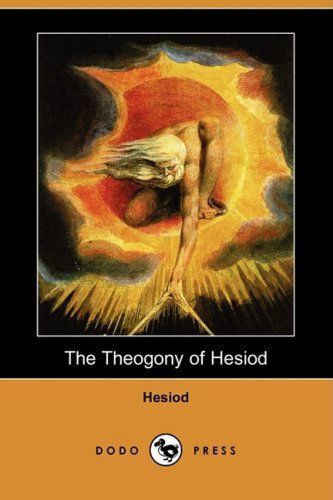
The Theogony of Hesiod
Hesiod was an early Greek poet and rhapsode, who presumably lived around 700 BC. His writings serve as a major source on Greek mythology, farming techniques, archaic Greek astronomy and ancient timekeeping. Of the many works attributed to Hesiod, three survive complete and many more in fragmentary state. They include Alexandrian papyri, some dating from as early as the 1st century BC, and manuscripts written from the eleventh century forward. He wrote a poem of some 800 verses, the Works and Days, which revolves around two general truths: labour is the universal lot of Man, but he who is willing to work will get by. Tradition also attributes the Theogony, a poem which uses the same epic verse-form as the Works and Days, to Hesiod. A short poem traditionally attributed to Hesiod is The Shield of Heracles. Several additional poems were sometimes ascribed to Hesiod: Aegimius, Astrice, Chironis Hypothecae, Idaei Dactyli, Wedding of Ceyx, Great Works (presumably an expanded Works and Days), Great Eoiae (presumably an expanded Catalogue of Women), Melampodia and Ornithomantia.